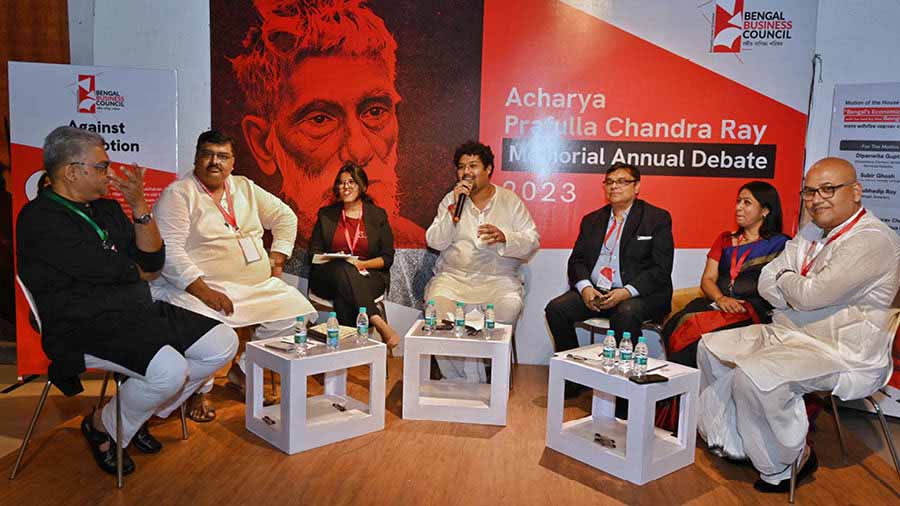Six industry leaders engaged in a war of words on whether ‘Bengal’s economic renaissance will be led by the Bengali entrepreneurs’ at the Acharya Prafulla Chandra Ray Memorial Annual Debate 2023, hosted by the Bengal Business Council, at Alipore Jail Museum, on August 12. My Kolkata was the digital media partner for the debate.
The debate was moderated by advocate Sourav Chunder and attended by prominent business leaders, entrepreneurs, intellectuals, and journalists, who collectively contributed to the vibrant exchange of ideas.
“One of the main reasons for the council to host this event is to create a vibrant Bengali entrepreneur community,” Chunder said.
The guest of honour was politician-journalist Swapan Dasgupta. “Despite all the hindrances and adverse environment, these people [entrepreneurs] have been doing business and making it big. Now, think about what they could have done with a business-friendly environment. I think we owe them this much,” Dasgupta said.
Subhashis Dutt, founder and general secretary of the Bengal Business Council, highlighted the event's importance in the council's overarching efforts to foster entrepreneurship and stimulate economic growth in Bengal.
The panel of judges comprising Sumona Ghosh, associate professor, St. Xavier’s College (Autonomous), Kolkata; Sharmishtha Banerjee, professor of Business Management at Calcutta University; and Tanushree Dutta, assistant professor at Adamas University, evaluated the arguments and contributed to the intellectual discourse.
The team that argued for the motion, won the competition and was awarded with mementoes.
Excerpts from the speeches:
For the motion
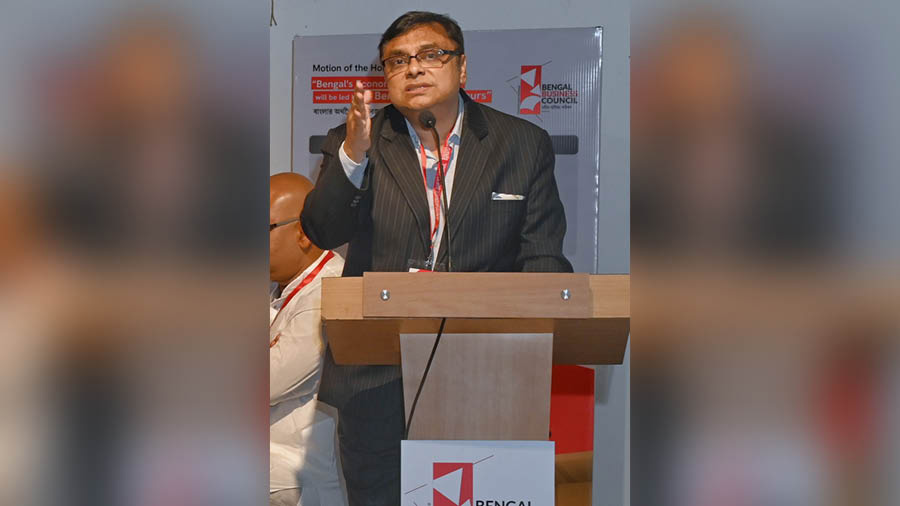
Subir Ghosh, MD of Unirox Bikes pointed out the political and social reasons plaguing Bengal for decades. He said that the stage and the atmosphere for an economic renaissance has been getting ready and it is the Bengalis who would bring it forth. “Between the late ’50s and early ’80s, the industrial growth of Bengal had halted because of political reasons. The unrest in Bengal and government policies were big hindrances. Now, the situation has changed and with the new liberal economic policies, the stage is set and Bengal’s entrepreneurs are getting ready to utilise the system,” he said.
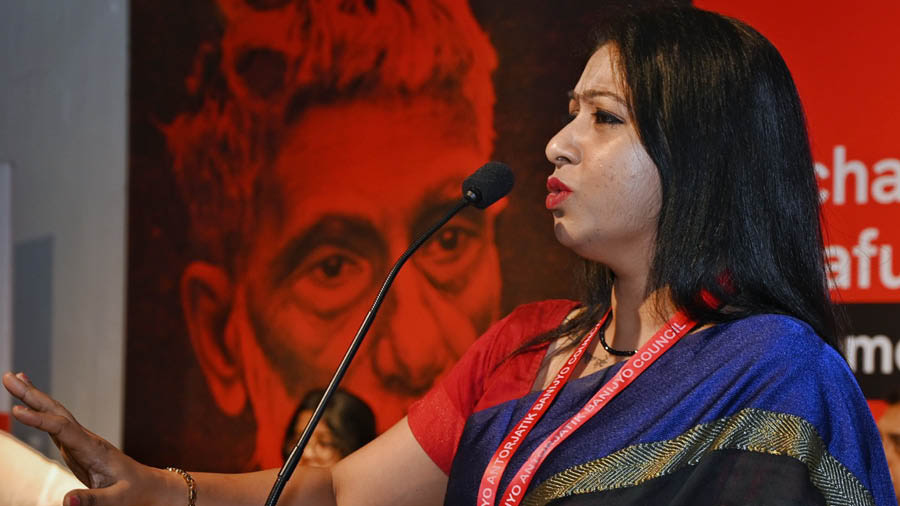
Dipanwita Gupta, owner of Dimensions Content Writing Services, spoke about how Bengalis will bring economic renaissance to Bengal. She presented a series of statistics that showed Bengal among the top 10 states on various counts. “But the question is, how many of these businesses are owned by Bengalis? The number of Bengali businesses is growing and the general mindset of people is changing. There is a community feeling and a proper ecosystem for business. I think these things would bring changes. At the same time, the business owners should be aware of the existing and new entrepreneur-friendly government policies,” she added.
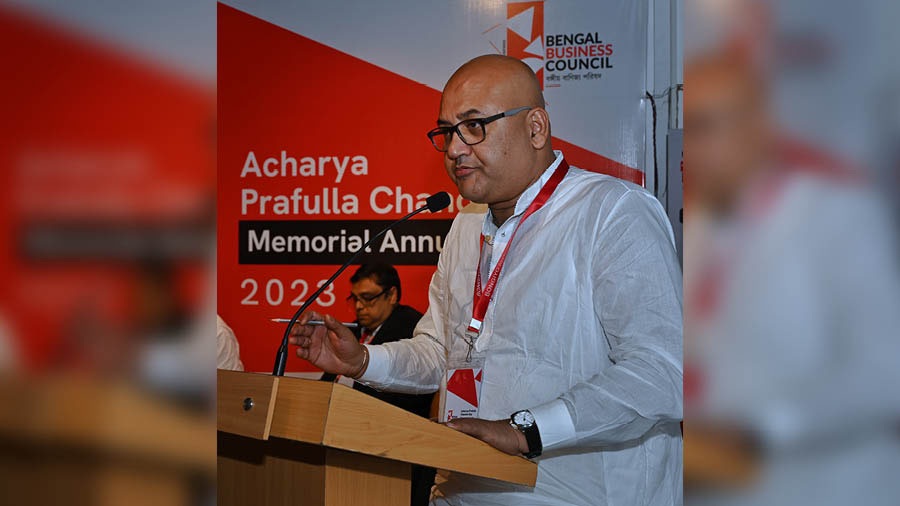
Subhadip Roy, Bengal Jewellery, dwelt on business in Bengal and how to develop it. He spoke about other business communities such as Marwaris and Gujaratis. He said that with a flourishing ecosystem, these two communities have developed a system of rolling money within the community. “They do business within the community and that way their wealth increases. That process has started and that is a great development. Meanwhile, the general mindset of people about business and businesspersons is also changing,” Roy said.
Against the motion
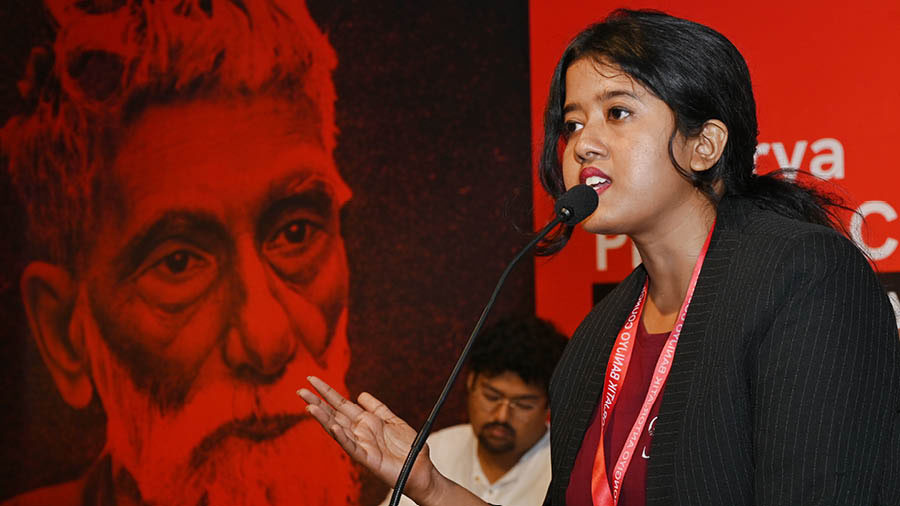
Reeti Jana, partner at Seedheart Plant, questioned the importance of community in an economic renaissance. “If Bengal needs a renaissance and it gets it, how does it matter which community is bringing it? When the state’s GDP is calculated, no one asks which community has contributed to it. For Bengal’s renaissance, we need industries and for that we need large investments. And there comes the need for other business communities,” she said.
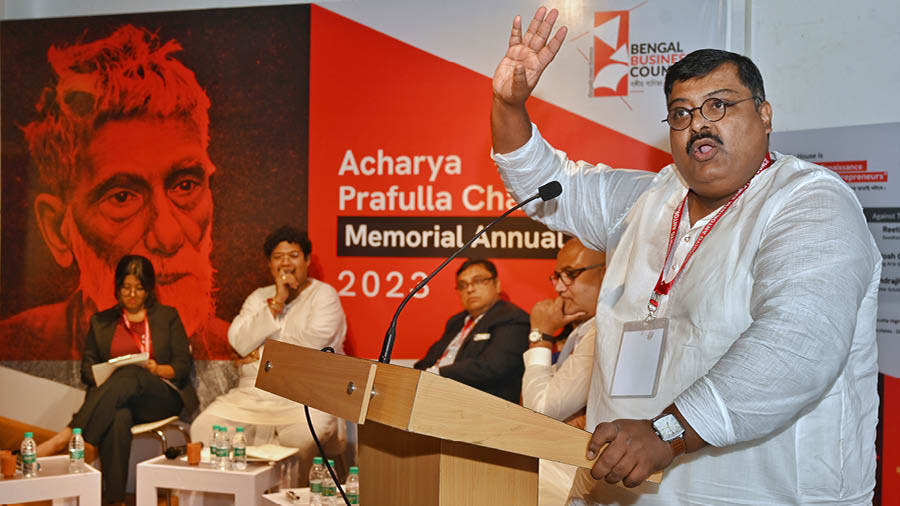
Debotosh Chatterjee, CEO and MD of Cleaning Arts Services Pvt Ltd., shared historical evidence to show how people from other community members contributed to renaissance. “During the period of Bengal’s Renaissance, we had personalities like Ishwarchandra Vidyasagar and Ram Mohan Roy. The British came to India and built schools and education hubs. With that, they brought a new thought. Just the way British culture influenced Bengal’s renaissance, the same way other communities would also influence the upcoming economic renaissance,” Chatterjee said.
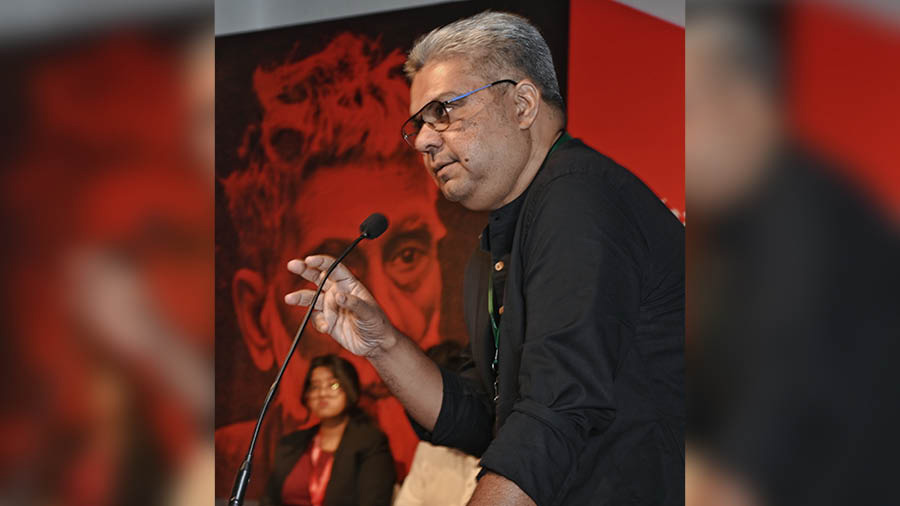
Indrajit Lahiri, director of Pickle Solutions Pvt Ltd, pointed out that when there is a need to talk about renaissance, that means there is or was a dark age and renaissance has to be a collective mass movement. “Over the years and centuries, Bengali entrepreneurship has become a city-centric elite matter. It has no regard and knowledge of rural or even suburban businesses. Until or unless those businesses are included, it cannot be a renaissance,” Lahiri said.
